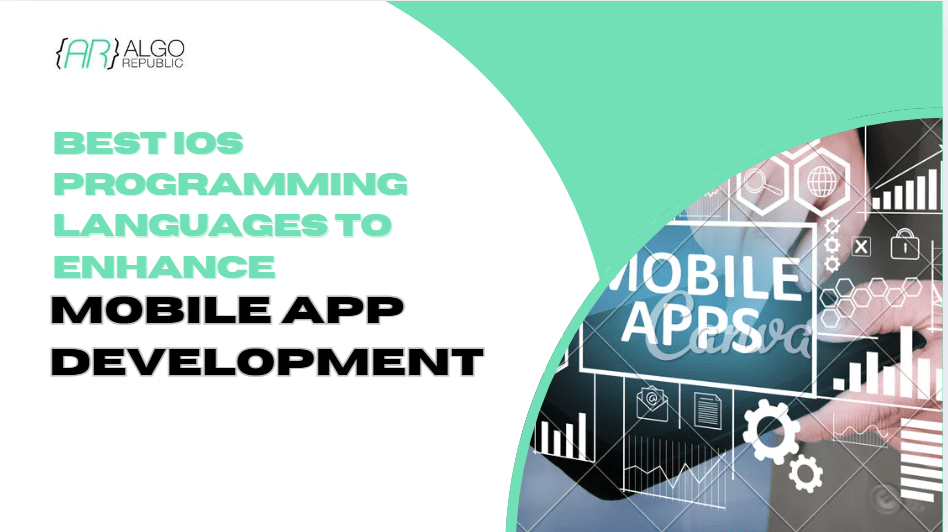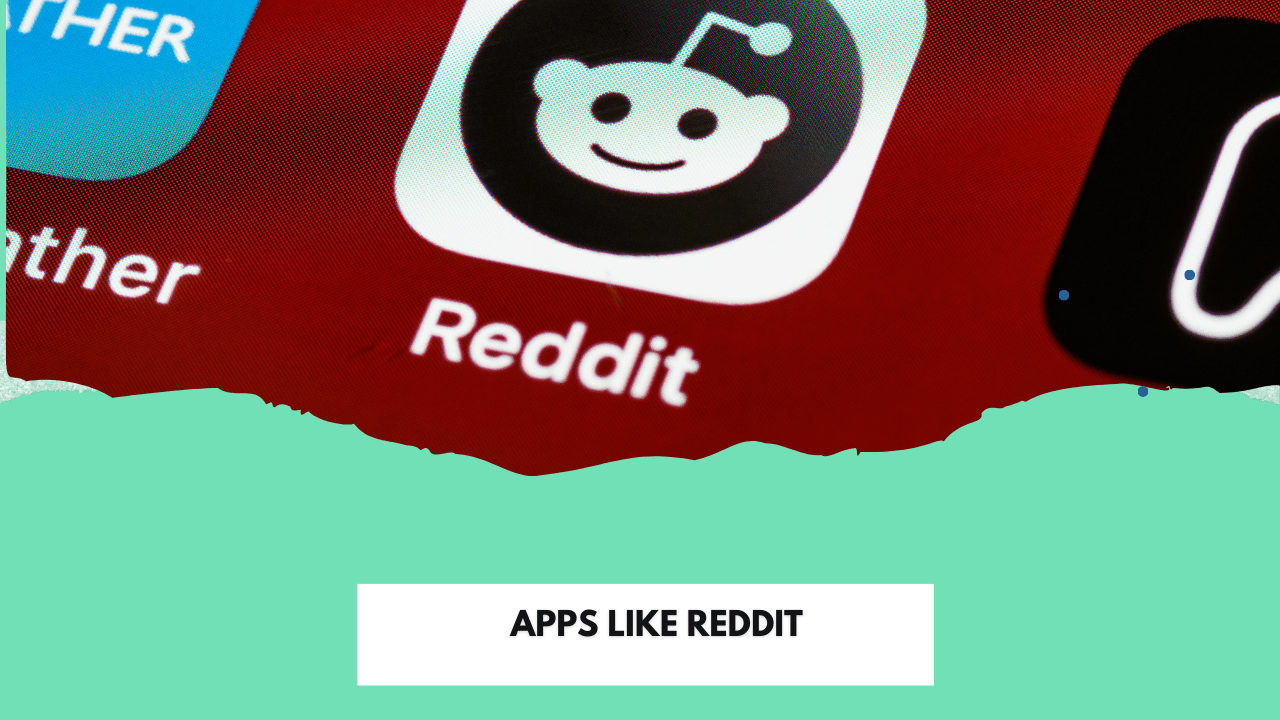Table of Contents
iOS’s widespread popularity has made it one of the go-to platforms for businesses looking to create high-quality mobile apps. Known for delivering a seamless user experience with rigorous security measures, iOS holds a strong market position, especially in regions like North America and parts of Europe. In fact, Apple’s iOS leads with over 60% of the U.S. mobile market share in 2024, with a significant impact on app trends and developer demand.
With this popularity comes the need for businesses to leverage effective programming languages for iOS to stay competitive. The right programming language can impact everything from development speed and app performance to user experience and scalability, especially given the tech-driven shifts happening this year. In this blog, we’ll guide you through the top programming languages ideal for iOS app development, offering insights into how each can help you create scalable, robust apps for 2024.
Learn About iOS App Development Briefly
iOS app development is the process of designing, creating, and deploying applications specifically for Apple’s iOS operating system, which powers iPhones, iPads, and iPod Touch devices. To develop effective iOS apps, programming languages such as Swift and Objective-C are essential, as they enable developers to create native applications optimized for the iOS platform’s unique features and guidelines.
Swift, Apple’s preferred language, is designed for speed and ease, while Objective-C offers compatibility with existing frameworks, giving developers flexibility and the tools needed to build high-quality, scalable iOS apps. You can also partner with an iOS app development company in USA to get your desired iOS app using integrated features and functionality.
Learn more about: How to Develop an iOS app?
Top iOS Programming Languages for a Seamless App Development Experience
Swift
Swift, developed by Apple in 2014, is the primary language for iOS app development, created to improve upon Objective-C. Swift is known for its clean, modern syntax and safety features, which reduce common coding errors. Its performance-optimized compilation and integration with Apple’s Cocoa and Cocoa Touch frameworks make it ideal for building fast, reliable apps.
Key Benefits:
- Speed: Highly optimized for performance.
- Safety: Memory-safe and prevents crashes.
- Interoperability: Works with Objective-C code.
- Readability: Easy-to-read syntax, even for beginners.
Objective-C
Objective-C, developed in the early 1980s and acquired by Apple in 1988, was the foundation of iOS development before Swift. As a superset of C, Objective-C brings C’s efficiency to object-oriented programming, making it ideal for integrating with Apple’s frameworks. It’s especially valued for legacy codebases and compatibility.
Key Benefits:
- C Compatibility: Integrates with C libraries.
- Mature Language: Decades of development support.
- Dynamic: Flexible runtime capabilities.
- Stable: Proven for large, complex applications.
C#
Developed by Microsoft in 2000, C# can also be used for iOS development through tools like Xamarin, now part of .NET. C#’s structured, high-level design supports rapid app development and cross-platform functionality, making it popular for developers who want to build both iOS and Android apps with shared code.
Key Features:
- Cross-Platform: Use one codebase for multiple platforms.
- Robust Libraries: Access to .NET libraries.
- Memory Management: Automatic garbage collection.
- Microsoft Support: Backed by comprehensive Microsoft resources.
JavaScript
JavaScript, combined with frameworks like React Native (developed by Facebook in 2015), allows developers to build mobile apps using web technology. It’s a powerful tool for cross-platform app development, delivering native-like performance while sharing code across iOS and Android.
Key Features:
- Cross-Platform: Code reusability between iOS and Android.
- Community: Strong support with numerous libraries.
- Fast Refresh: Instant UI feedback.
- Integration: Connects with native features for enhanced functionality.
Python
Python, though primarily a backend language, has mobile app frameworks like Kivy and BeeWare that support iOS development. Created in 1991, Python’s readability and extensive libraries make it appealing for developing prototypes or apps with strong backend requirements.
Key Benefits:
- Easy Syntax: Beginner-friendly and highly readable.
- Extensive Libraries: Wide range of development resources.
- Prototype-Friendly: Quick to test ideas.
- Community: Large support base and documentation.
Kotlin
Though primarily known as the official language for Android, Kotlin is also compatible with iOS through tools like Kotlin/Native. Developed by JetBrains in 2011, Kotlin offers modern syntax and safety features, making it suitable for cross-platform iOS app development with shared code for Android.
Key Features:
- Cross-Platform: Supports both Android and iOS.
- Null Safety: Reduces null pointer errors.
- Interoperability: Works with Java code.
- Concise: Requires less boilerplate code than Java.
Ways to Upgrade App Performance Using iOS Programming Languages
Upgrading app performance on iOS through programming languages involves several best practices:
- Optimize with Swift:
Swift, as Apple’s native language, is designed to offer fast performance and low memory usage. Leveraging Swift’s efficient syntax can streamline code and improve execution speed.
- Use Efficient Data Structures:
Selecting optimized data structures (like arrays and dictionaries) in Objective-C or Swift helps reduce app processing time.
- Concurrency and Multithreading:
Swift and Objective-C allow multithreading, enabling background tasks to run without affecting the main app performance, which is crucial for smooth functionality.
- Leverage SwiftUI and Combine:
Apple’s SwiftUI framework optimizes UI performance, and the Combine framework allows reactive programming to streamline event handling and data updates.
- Memory Management:
Using Automatic Reference Counting (ARC) in Swift prevents memory leaks, enhancing app stability.
- Profiling and Testing:
Regularly profiling the app using Xcode’s tools like Instruments helps identify bottlenecks and optimize areas of the code impacting performance.
Factors that Influence to Select the Right iOS Programming Language
When developing an iOS app and selecting the right programming language, several key factors come into play:
- App Complexity and Requirements:
Complex, high-performance apps may require languages with direct support for native libraries, like Swift or Objective-C, whereas simpler apps might suit cross-platform languages.
- Development Speed:
Languages with simpler syntax, like Swift or Python, accelerate development, ideal for fast market entry.
- Platform Compatibility:
If cross-platform functionality is needed, JavaScript (via React Native) or C# (with Xamarin) are useful options.
- Scalability Needs:
Swift and Objective-C offer robust scalability for apps expected to grow in user base and features.
- Maintenance and Support:
Languages with strong community support, like Swift, JavaScript, and Python, ease troubleshooting and future maintenance.
Important Features to Consider when Looking for the Best iOS Programming Language
When choosing the right iOS programming language, it’s essential to consider these features:
- Performance Efficiency:
The language should efficiently handle tasks without slowing down the app, particularly for resource-intensive applications.
- Ease of Integration with Apple Ecosystem:
Languages that smoothly integrate with Apple’s frameworks and APIs, like Swift or Objective-C, enable seamless functionality across Apple devices.
- Community and Support Resources:
Strong community support provides reliable resources for troubleshooting and upgrades.
- Security Features:
Security-focused languages protect sensitive data and align with Apple’s stringent security guidelines.
- Scalability:
The language should support future expansion as app functionality grows.
Conclusion
To wrap up, Swift is often the top choice for iOS development in 2024 due to its performance, modern syntax, and Apple ecosystem integration, though Objective-C remains relevant for maintaining legacy projects. Both languages, along with others like Kotlin for multiplatform support, ensure robust, feature-rich applications.
At AlgoRepublic, we provide advanced iOS app development services tailored to your needs, utilizing the latest programming languages for seamless, scalable apps. Our streamlined development process involves in-depth planning, agile development, and rigorous testing to ensure a top-quality app aligned with your business goals. Let’s build something exceptional together!
FAQs:
Swift, Objective-C, Kotlin (for multiplatform), and C# for Unity development are currently popular for iOS app development.
Swift is optimized for iOS, has modern syntax, and is highly performant, making it a top choice among iOS developers.
Yes, Objective-C is valuable for maintaining legacy apps and is compatible with Swift.
Consider language compatibility, performance, developer community support, scalability, and ease of integration with existing systems.
The right language optimizes memory usage, execution speed, and supports better UI responsiveness, improving overall user experience.
Costs vary based on the app’s complexity, features, language, and development team's expertise.
Swift is primarily for iOS, but can work with limited cross-platform support using tools like SwiftUI, though other options like Kotlin are more versatile for cross-platform.
Look for a team with expertise in the chosen programming language, experience with Apple’s frameworks, and a portfolio of successful iOS projects.
Updated languages provide the latest features, security improvements, and maintain compatibility with Apple’s evolving iOS ecosystem.



